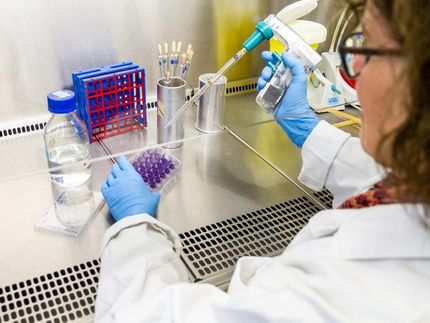MediGene: Dose-Finding Trial of Oncolytic Virus NV1020 for the Treatment of Liver Metastases Shows Efficacy Trends
Advertisement
MediGene AG announced that the interim analysis of the phase I/II trial of the cancer-killing virus NV1020 for the treatment of liver metastases in patients suffering from colorectal carcinoma has shown a clear indication of efficacy. Therefore the trial will be continued as scheduled, with the maximum dosage of the viruses.
In the first stage of the trial, 13 patients whose cancer was progressing despite treatment with chemotherapeutics and monoclonal antibodies were medicated with oncolytic viruses in different concentration. A total of four virus injections was administered at weekly intervals through the hepatic artery into the patients' livers affected by metastases. Imaging techniques, clinical appearance, as well as blood analyses verify that the viruses have a dose dependent therapeutic effect in the patients treated. All patients receiving the maximum dosage showed either a disease stabilization or even a clear regression of liver metastases. Moreover, some of the patients showed regressing metastases in other organs as well, which indicates an effect of the viruses even beyond local application. Since the treatment shows a very good safety profile, the Data Safety Monitoring Board (DSMB), an independent board for the surveillance of the patients' safety, has unanimously recommended the continuation of the trial with the maximum dosage. Due to the encouraging efficacy trends, another 18 patients are to be enrolled in the second part of the trial which is conducted by several medical centers at renowned US universities.
MediGene's oncolytic herpes simplex virus (HSV) NV1020 is designed to selectively multiply in tumor cells, thus destroying the tumor (oncolysis). The technology is based on the assumption that oncolytic HSV function more specifically and efficiently than conventional therapies do, without causing serious adverse events. They could provide a therapeutic alternative against tumors that are inoperable or have developed a resistance to chemotherapy or radiotherapy. Moreover, the combination of oncolytic HSV and standard therapies such as chemotherapy or radiotherapy may create a synergistic effect.
Other news from the department research and development
Most read news
More news from our other portals
See the theme worlds for related content
Topic world Antibodies
Antibodies are specialized molecules of our immune system that can specifically recognize and neutralize pathogens or foreign substances. Antibody research in biotech and pharma has recognized this natural defense potential and is working intensively to make it therapeutically useful. From monoclonal antibodies used against cancer or autoimmune diseases to antibody-drug conjugates that specifically transport drugs to disease cells - the possibilities are enormous

Topic world Antibodies
Antibodies are specialized molecules of our immune system that can specifically recognize and neutralize pathogens or foreign substances. Antibody research in biotech and pharma has recognized this natural defense potential and is working intensively to make it therapeutically useful. From monoclonal antibodies used against cancer or autoimmune diseases to antibody-drug conjugates that specifically transport drugs to disease cells - the possibilities are enormous






















































